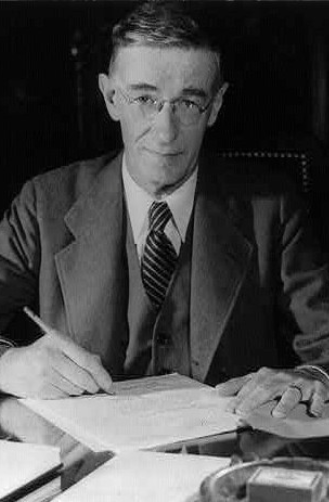Conversation
This new series of essays was developed to introduce novel topics on strategic issues to the community. In addition to inspiring multi- and interdisciplinary conversations, the objective of the series is to generate substantive feedback for authors who may wish to develop their ideas further.
We invite you to join the conversation by reading these essays and sharing your comments with us at info@andrewmarshallfoundation.org.

the Complexity Trap, and National Security
By Carl O. Pabo, Ph.D.
“In this first essay in my series about new tools for strategic thought, I introduce a simple modeling system designed to help us think more clearly about the ways in which the rise of AI will change the world. This qualitative, agent-based model identifies several dozen key societal actors—from tech companies and ordinary citizens to political leaders and AI-based agents —and then analyzes how their actions and interactions are likely to reshape the world over the next 5-10 years.
This model is designed to facilitate scenario analysis and policy development, and it points to four major transformations that lie ahead: 1) AI will facilitate remarkable technical advances, yet will 2) relentlessly intensify competitive pressures (as in cyber attack and cyber defense), 3) accelerate a “crisis of complexity” that already threatens governance, and will 4) change the nature of work and prospects for human employment so rapidly that governments may not be able to respond effectively. Unlike the Industrial Revolution, the benefits of AI may be distributed so unevenly as to risk disruption of the social structures on which progress and national security must ultimately depend.
I’d be delighted if others want to collaborate—extending and refining this model, which offers to help a disciplined framework for thought and for scenario analysis in realms where traditional sources of knowledge—experience and experiment—are unable to help. We still need to think, and this gets us started.”

Harms the Mission
By Melissa Flagg, PhD
“In this third essay of my series, “When Efficiency Harms the Mission,” I delve into the hidden costs of prioritizing efficiency above all else. While efficiency often provides tidy, short-term gains, it can undermine the resilience and adaptability needed to respond successfully in when our strengths are rendered less effective.
The essay challenges us to rethink our obsession with centralized control and quantifiable outcomes, proposing a shift toward a decentralized, competitive approach that embraces longstanding American strengths of diversity, tension, and creativity. Drawing from lessons in war, innovation, and policy, I argue that focusing on mission over function is key to true national security.
This series continues to discuss the idea that we are in a moment of transition and our current emerging problems resist our old solutions. It’s critical that we spend some time reflecting on what frameworks we need to foster resilience in an uncertain world rather that jumping straight to solutions.”

America's R&D Funding Landscape
By Melissa Flagg, PhD
“Over the past few years, as I’ve engaged with communities across America, I’ve become increasingly troubled by a fundamental disconnect in our scientific enterprise. While we continue to lead the world in research output and technological innovation, I’ve observed a growing gap between our tremendous research capabilities and the everyday challenges facing American communities. The system that Vannevar Bush envisioned – one that would harness science for the benefit of all citizens – has evolved into a binary ecosystem that prioritizes either pure scientific curiosity or market-driven solutions, leaving little room for addressing local and regional problems that don’t fit neatly into either category.
This essay builds on my previous work examining Bush’s legacy, but shifts focus to a critical question: How can we bridge the gap between our nation’s impressive research capacity and the practical needs of American communities? The answer, I believe, lies not in abandoning Bush’s vision, but in applying his problem-solving approach to today’s context – creating new mechanisms to ensure our scientific enterprise serves all Americans, not just those pursuing profit or prestige. There are some great examples at the local level across the U.S. and Canada. Going forward, I hope to have the opportunity to collaborate with a few of these folks and bring some solutions to light. This may be a moment where the federal government has to fundamentally re-envision a new additional role in our S&T ecosystem.”

The Endless Frontier
By Melissa Flagg, PhD
“At the end of 2016, I began to believe that our longstanding DoD priority of achieving technological superiority across all domains was simply no longer feasible. I left DoD and took a year off. During that time, I dove into the foundation of the American R&D system: Science the Endless Frontier by Vannevar Bush. Revisiting this guidestar reshaped my perspective on what was needed going forward.
After seven years of developing my ideas further, I am excited to share this first essay in a body of work that spans strategy, R&D, and national security topics. In this essay, “Reopening the Endless Frontier,” I begin with a challenge to the R&D community to stop treating Bush’s 1945 prescriptions as eternal truths and instead embrace his actual legacy: the methodical analysis of current challenges to create new solutions. The global R&D landscape has transformed dramatically – science funding has tripled since 2000, talent is globally distributed, and the U.S. federal share of R&D has shrunk from 70% to under 20%. Domestic trust in the federal government is waning and industry is playing an unprecedented role in R&D. As Bush would likely advise today, we need fresh frameworks for modern challenges, not attempts to recreate a past that no longer exists.”

